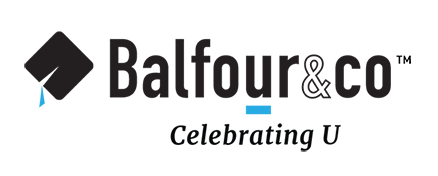 Bridgeland staffer Ella Barnes finds on a spot on the floor with the staff’s giant stuffed bear. Taking moments for rest and relaxation is instrumental and beneficial for staffers. Photo by Samantha Berry
Bridgeland staffer Ella Barnes finds on a spot on the floor with the staff’s giant stuffed bear. Taking moments for rest and relaxation is instrumental and beneficial for staffers. Photo by Samantha Berry
From time to time we feature guest columns from Balfour advisers. In this guest post, Bridgeland High School adviser Samantha Berry focuses on student wellness. This is her ninth year teaching and advising.
Teenagers are great at many things. They know the internet lingo, they have a quick remark for any situation, and they can tell you the exact location of every Kardashian at any given moment. Undoubtedly useful stuff. But they don’t have many, or maybe any, skills in the art of self-care.
The website for Nationwide Children’s Hospital reports teenagers average 7 to 7 and a half hours of the preferred 9 to 9 and a half hours of sleep per night. What group of teenagers is getting 19 hours of sleep per night to bring the average up from the 4 to 5 hours of sleep that teachers know teenagers are getting? Your kids are tired—to an unhealthy degree.
Here’s how to teach teenagers some self-care (and maybe yourself in the process):
-Set strict time boundaries for after-school work sessions. At some point,
advisers have to reign it in.
- Set a timer when they walk in. Tell parents exactly when to show up.
- Hit ’em with a truly obnoxious song to drive them out—just do something.
- Protect personal time—it’s invaluable.
-Practice mindfulness. Mindfulness is the psychological process of bringing
attention to experiences occurring in the present. Teenagers are continually
distracted, especially by social media. Feeling out of touch with our lives
results in stress and anxiety. There are lots of great articles with exercises
to practice mindfulness, and I highly encourage you to research the topic.
I lead my group through mindfulness exercises that focus on their identity
and value. When staff members feel loved, they are more at peace.
-Teach them how to rest and honor rest. Sometimes, we need a nap. I do this a
couple of times per year—not often. This is a gift from me to them. Whenever we
hit a week when I’ve seen far too many tears, heard too many snarky remarks
and can feel too much tension, I start the class by telling them to find a spot on
the floor. They leave their phones in their bags (me too), they run for pillows,
blankets and our giant stuffed bear and after some affirming words from me,
they take a 15-20-minute nap. Play some calming music in the background—
I highly suggest the bands Sleeping at Last or Explosions in the
Sky (really, it’s peaceful).

In December, the Bridgeland yearbook staff took a 15-minute nap before returning to deadlines. “The end of the semester is a test of wills for us all, and teenagers just have no concept of self-care,” adviser Samantha Berry said. “They don’t know how precious rest and relaxation is for their mental and physical health.” Photo by Samantha Berry
-Words have power. It’s important to monitor how our students speak. I’m nosey
as heck. I dig into everything they say, and sure, they don’t always love it. But I
love them and that’s why I do it. They also have no concept of what a true
compliment is. Teach them how to call out the positive qualities in people, aside
from physical attributes. This forces them to really see others; it’s fruitful when
handling conflicts. A great activity for this is “I’ve Got Your Back.”
- Pin a piece of paper to everyone’s back, including yours, and hand
everyone a marker.
- Have them walk around and write affirming messages and compliments on
each other’s papers.
- Read them aloud to the group. o Discuss how we speak about each other
when we aren’t face-to-face.
- Emphasize that words have an extreme amount of power in any
circumstance.
Also, we have rules about communication. Texting lacks voice inflection and messages are always received through an internal filter created by our own insecurities. There will be drama—every year. However, make it a policy that arguments and the tough stuff are always handled in-person and never digitally. In reality, we need to teach them how to fight fair and be brave.
-Let it go. In yearbook, you’re never done—you’re just out of time. Any design
can be adjusted a little more and any copy can be edited endlessly. It’s
important to teach students how to let it go rather than give up. I watch
students quit in frustration rather than pushing through their dissatisfaction
to the deadline, aka, the end.
Discuss having a growth mindset with their work. Is it perfect? No. Did it show
progress? Yes. What can we do better at the next opportunity?
Create reflection sheets for students or have conferences at the end of each
deadline. Self-care and self-awareness are two horns on the same goat.
Caring for ourselves requires awareness of ourselves.
Create a space where vulnerability is admired, health is honored and hearts are cared for. You will never regret a moment spent teaching kids to be their best selves.


